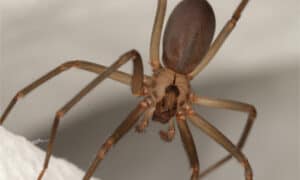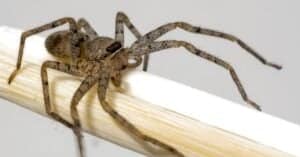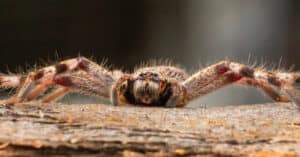Most household spiders are not only harmless, but they are also actually quite beneficial to your home. Serving as a free and natural pest control, spiders hunt and eat pests like flies, mosquitoes, and roaches. However, for many of us seeing a spider strolling across your kitchen floor isn’t the most welcome sight. But why do spiders set up shop indoors? Here are 12 things that attract spiders to your home!
1. Other Insect Visitors
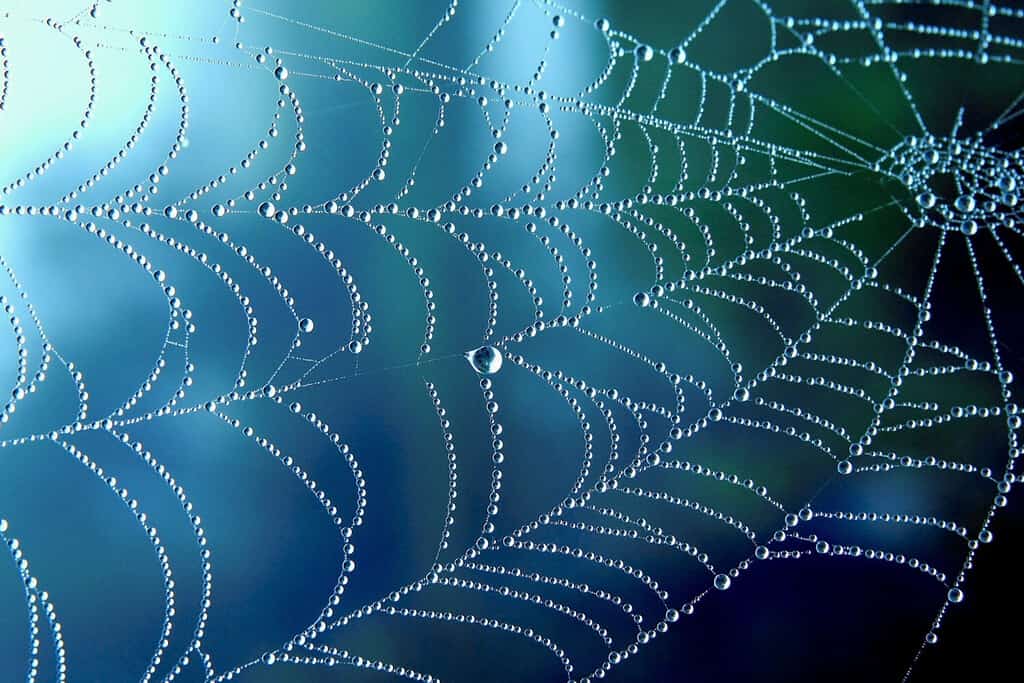
Many types of spiders spin intricate webs that help them to catch their food.
©SakSa/Shutterstock.com
Spiders are opportunistic hunters and tend to set up their homes wherever they can find plenty of food. So, if your home is a frequent stop for insects like gnats, mosquitoes, flies, ants, or roaches, you’ll likely begin seeing spiders soon too. While these eight-legged critters are actually beneficial pest control agents, many people prefer a spider-free home. The key is to address the root of the problem — if you keep those other insects out, it will discourage spiders from moving in.
2. Humidity and Warmth
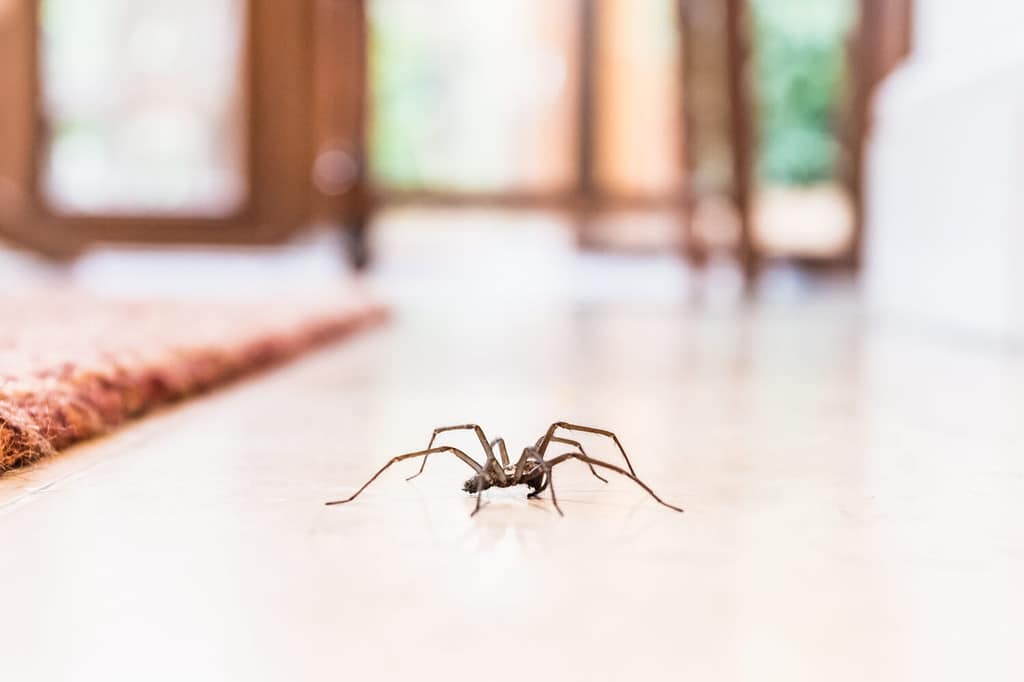
The warmth found indoors is very enticing for spiders.
©Christine Bird/Shutterstock.com
Spiders love areas that are humid and moist, such as damp basements and crawlspaces or around leaky pipes, dripping faucets, and laundry rooms. The extra moisture helps them stay hydrated and it attracts some of their favorite foods like flies. When it’s cold outside, a warm and humid house is very welcoming to spiders looking to escape the harsh weather.
3. A Cozy Environment with Plenty of Corner Space
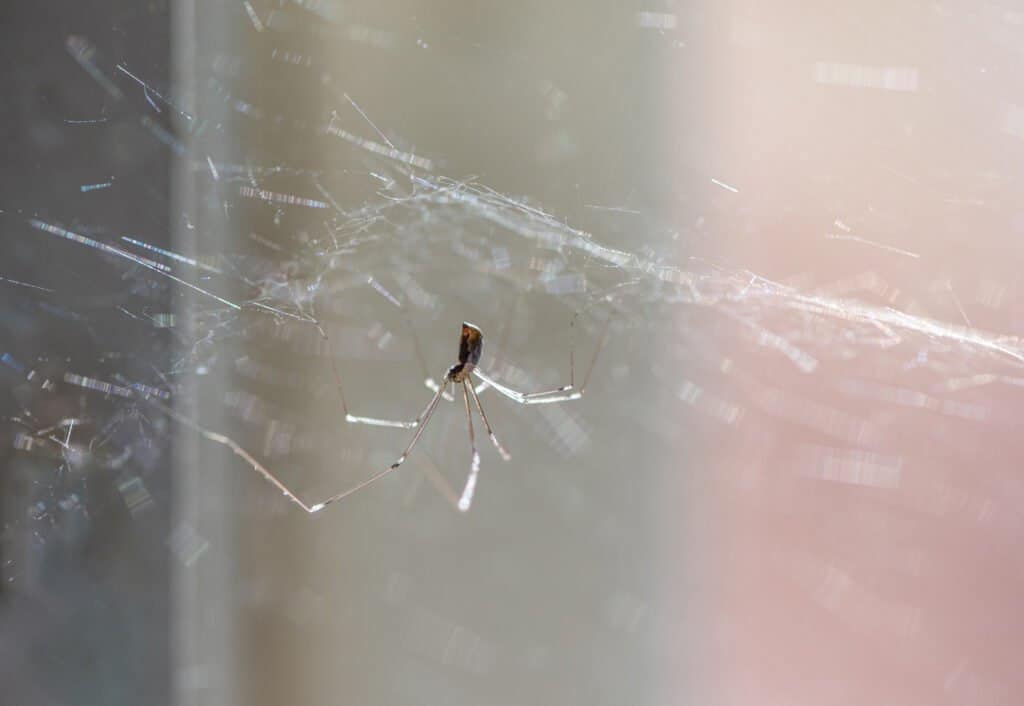
Dusting regularly can help keep spiders out of your home.
©iStock.com/Lena Gadanski
Spiders prefer building their nests in cozy corners where they won’t be disturbed. They especially favor areas like the space behind furniture, in crawlspaces, under the stairs, and in other little nooks and crannies around your house.
4. Water
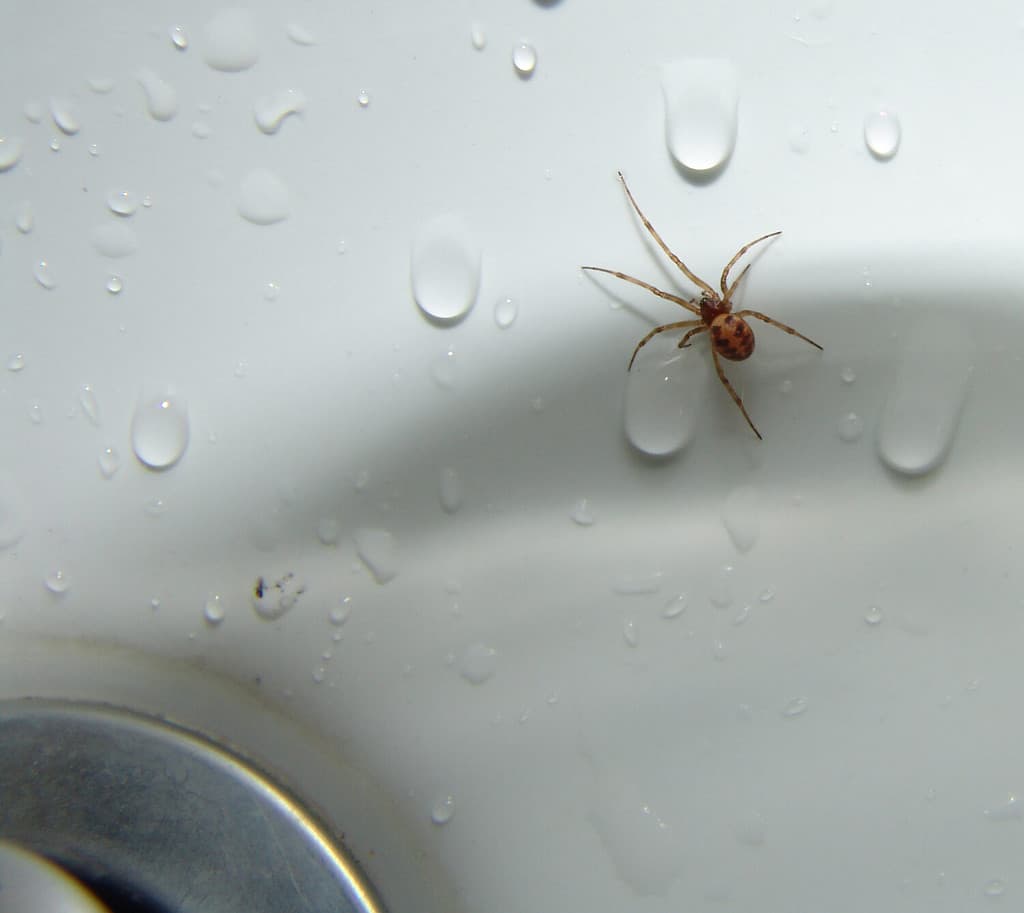
It is not uncommon to wake up and find a spider resting in your sink!
©Steven Vona/Shutterstock.com
Damp environments near water sources also attract spiders to your house. While spiders need water for their own survival, these areas also draw in fruit flies, gnats, and other small insects, setting up a lovely buffet for a hungry spider.
5. Houseplants
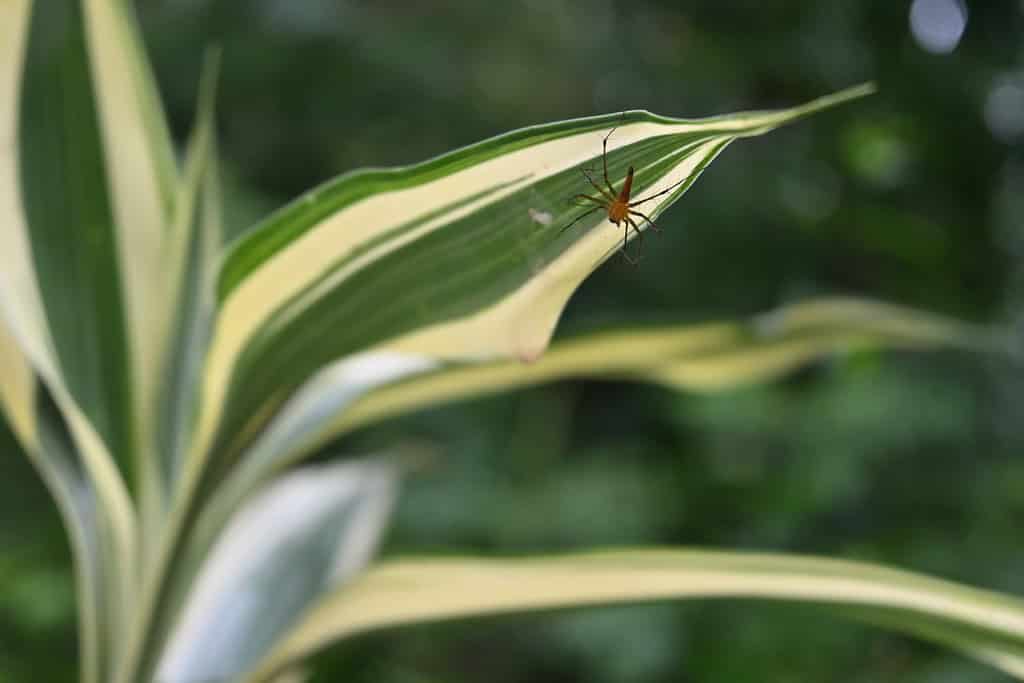
Spiders can accidentally travel inside if they’ve nested on a houseplant.
©Pics Man24/Shutterstock.com
Houseplants are excellent additions to your home; they promote better air quality and are a great way to boost your mental health. However, houseplants can also unintentionally attract other creatures as well like tiny flies. These tiny flies, in turn, attract spiders who act as excellent pest controllers.
6. Food and Crumbs
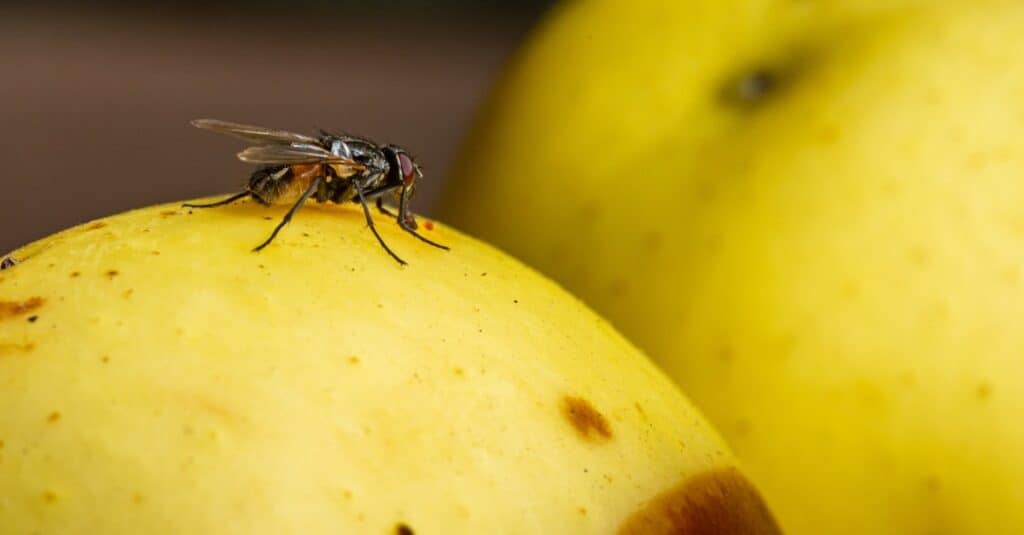
Houseflies are attracted to leftover fruit, and spiders are attracted to houseflies.
©iStock.com/heckepics
Forgotten fruit or abandoned crumbs on the table may seem like harmless oversights, but they can be an excellent homing beacon for hungry insects. Insects are drawn to leftover food in your home, and not far behind them are spiders on the hunt. If you wish to keep both insects and spiders away, be sure to clean up spills quickly and avoid leaving food out on the counter.
7. Boxes and Clutter
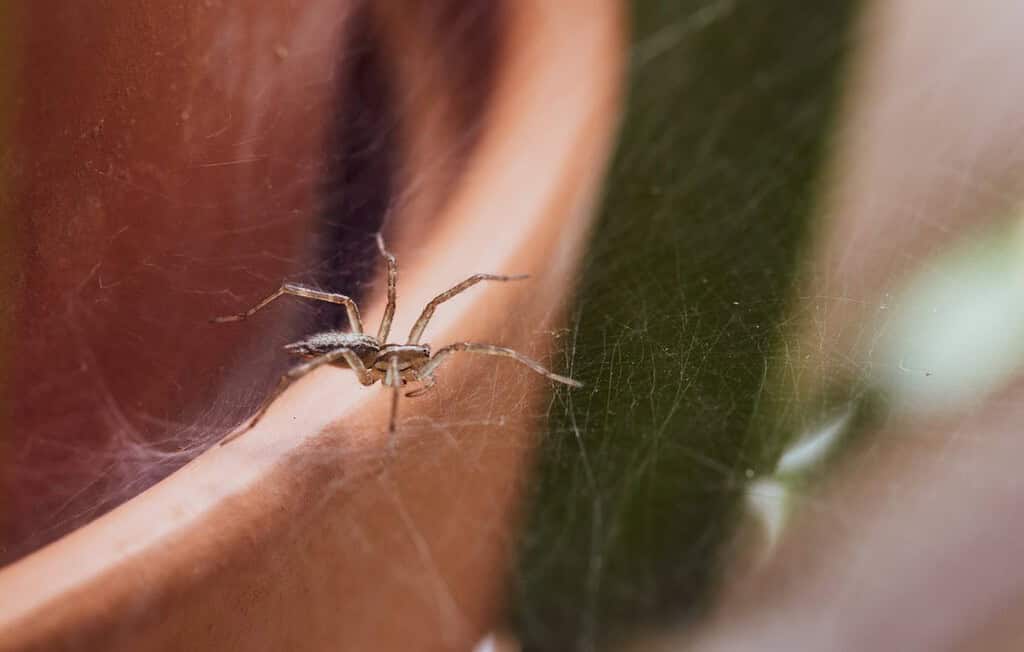
Spiders are shy creatures and do not like being disturbed.
©Veronique Duplain/Shutterstock.com
Spiders are skilled weavers who prefer undisturbed areas for their webs. That forgotten stack of Amazon boxes in the basement? Well, that’s prime real estate for a spider! Boxes and piles of clutter are full of good hiding spots, offering these eight-legged architects a sense of safety and security.
8. Cracks and Openings
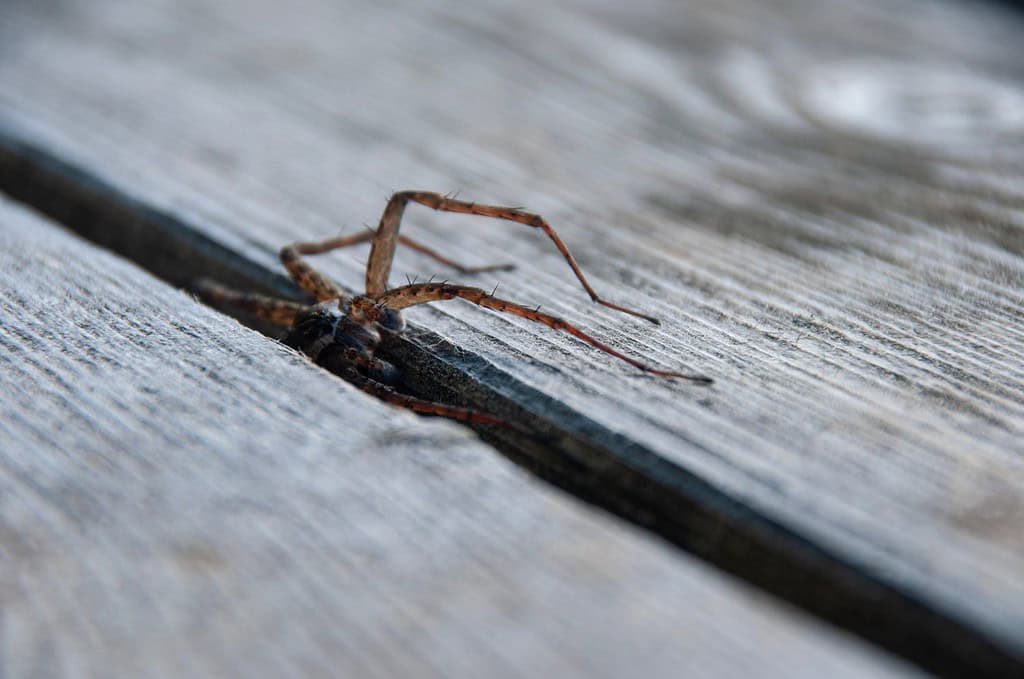
Most household spiders are harmless.
©Matt LaVigne/Shutterstock.com
Spiders are incredibly flexible and can contort their bodies to squeeze through surprisingly small spaces. While screens on windows offer a good barrier, even the tiniest gap around a window or door frame can act as a welcome mat for a spider. If you want to keep spiders out, regularly inspect the seals around your windows and doors, and if you happen to spot any cracks or openings, apply a suitable caulk or sealant to close them up.
9. Bright Outdoor Lighting
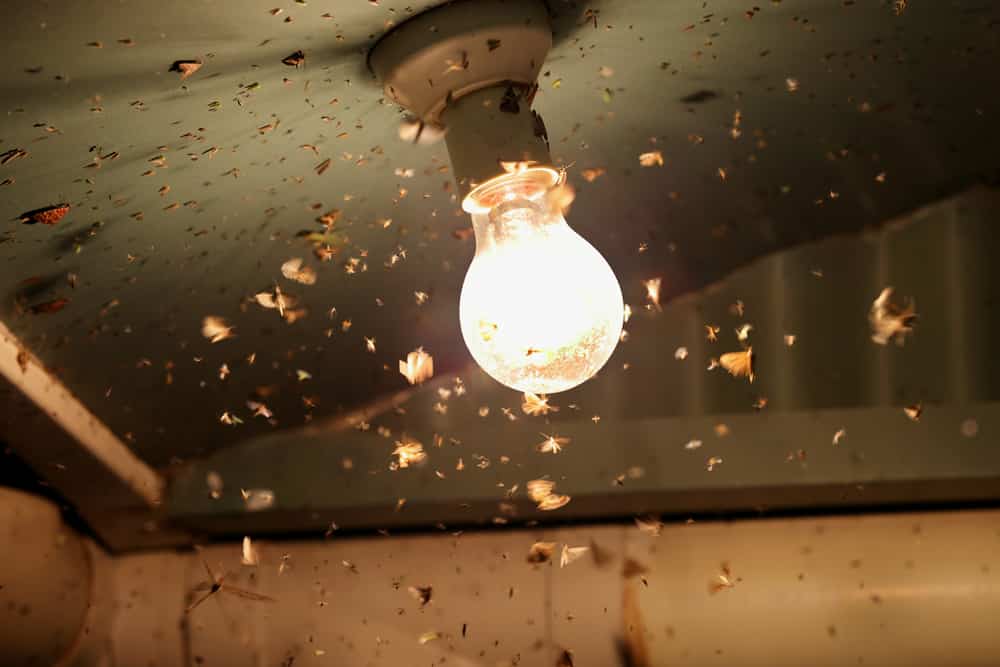
Spiders often build nests near outdoor light sources.
©Ken Griffiths/Shutterstock.com
While a well-lit porch or patio may add to the appeal of your home, it can also be an unintended dinner invitation for insects and spiders. Spiders love to dine on flies and moths, and these insects are naturally drawn to bright lights at night. So, while outdoor lights are useful, they can also create an attractive spider buffet as these eight-legged creatures follow their favorite food sources to your home.
10. Garbage

In urban areas, many spiders live in discarded containers and other thrown-out objects.
©Daria Kulkova/iStock via Getty Images
Trash bags and garbage offer a unique blend of aromas that can be quite attractive for various insects. These tiny visitors, in turn, attract hungry spiders looking for an easy meal. To keep both prey and predator away from your home, be sure to seal up trash bags and keep your cans clean.
11. Overgrown Plants
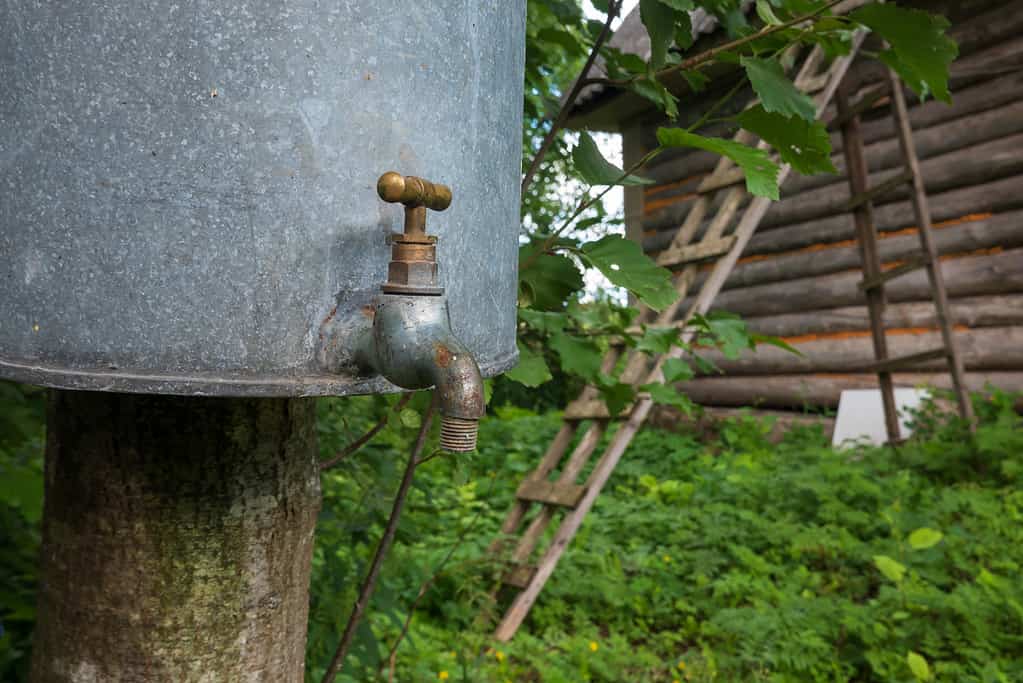
Areas with overgrown plants or discarded objects can make great spider homes.
©AnatolEr/iStock via Getty Images
A lush yard with lots of plants is a beautiful sight — and it also creates a haven for all kinds of creatures. Insects and other critters love the shelter that overgrown foliage provides, which also makes your home very attractive for hungry spiders on the prowl.
12. Rarely Used Rooms
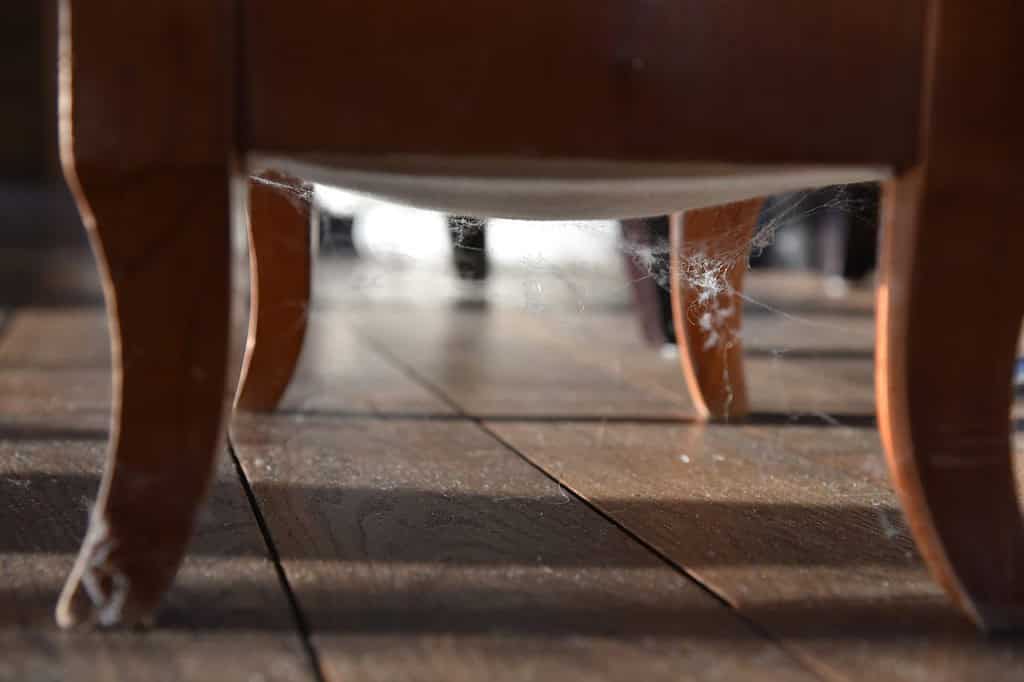
With optimal conditions, some house spiders can live for two to seven years.
©Silke Reitz/Shutterstock.com
Spiders enjoy peace and quiet, which is why you might find them setting up shop in some of the unused areas of your home. A guest room that rarely sees visitors, a rarely-used basement, the attic, a crawlspace, or a neglected shed are excellent places for spiders to live. Spiders love building their webs in these rarely disturbed havens, living free from interruption and major threats.
The photo featured at the top of this post is © Christine Bird/Shutterstock.com
Thank you for reading! Have some feedback for us? Contact the AZ Animals editorial team.



